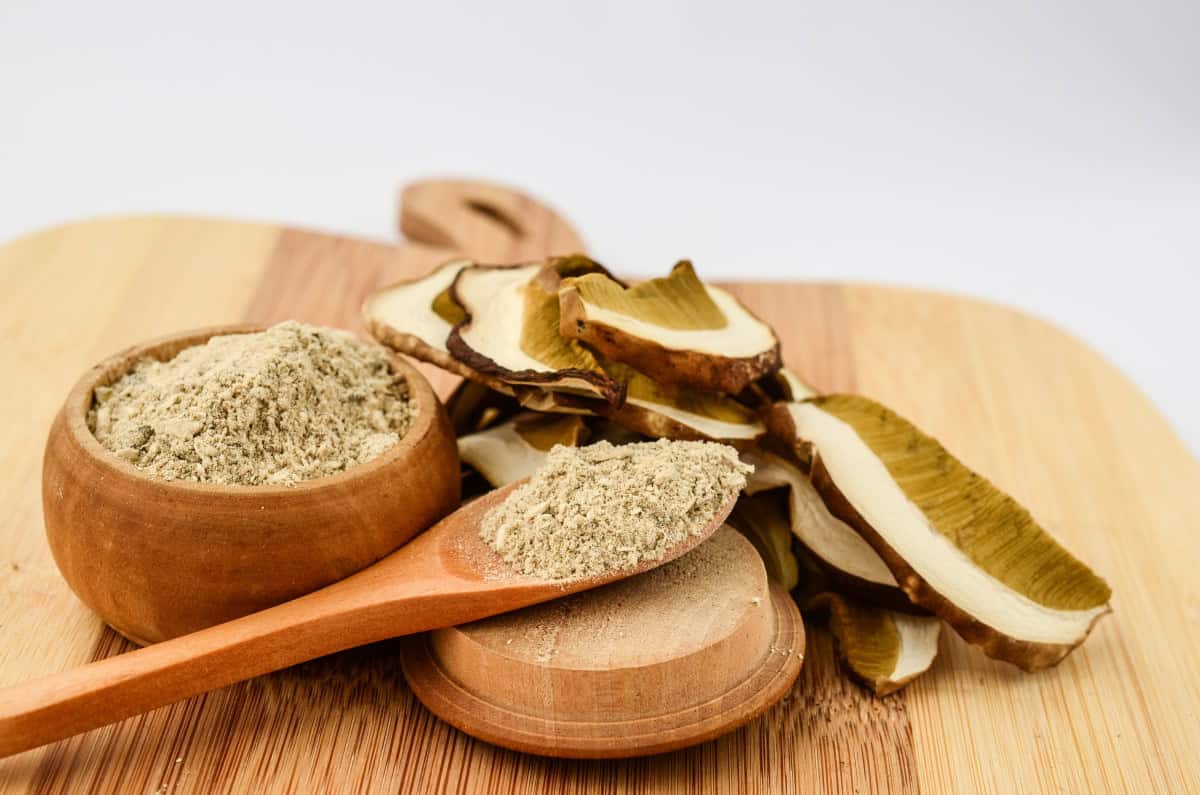Can I Drink Mushroom Powder While Pregnant?
By Mushroom Naturals | Last Updated: 9th May 2025

You're not alone if you’re pregnant and wondering whether it’s safe to drink mushroom powder. With wellness powders gaining popularity, many women want to know if reishi, lion’s mane, chaga, or cordyceps products are safe during pregnancy.
In this article, we’ll delve into the known facts and the uncertainties surrounding mushroom powders and pregnancy. This will equip you to make informed, cautious choices for you and your baby.
Related
What Is in Mushroom Powder?
Mushroom powder blends typically include dried and ground forms of medicinal mushrooms like reishi, lion’s mane, chaga, cordyceps, and turkey tail. Some products also mix in adaptogens, herbal extracts, or small amounts of caffeine for added energy or focus.
While these ingredients are praised for supporting immunity, stress balance, and cognition in general wellness, they raise questions in pregnancy. That’s because the concentrated form of powders delivers more bioactive compounds than eating mushrooms as food, and there’s a lack of strong human research confirming their safety for pregnant women.
Are Mushroom Powders Safe During Pregnancy?
Currently, conclusive scientific evidence confirms that mushroom powders are safe to consume during pregnancy. While edible mushrooms like shiitake, maitake, and oyster are generally considered safe when eaten as part of a meal, medicinal mushroom powders are more concentrated and less studied.
Mushrooms like reishi, lion’s mane, chaga, and cordyceps may affect the immune system, blood pressure, hormone balance, or interact with medications — all sensitive areas during pregnancy. Because of these unknowns, most healthcare providers recommend avoiding mushroom powders during pregnancy unless specifically approved by a doctor.
Understanding the Potential Risks of Mushroom Powder During Pregnancy
Several potential concerns make mushroom powders a questionable choice during pregnancy. These include hormonal effects, immune system stimulation, potential effects on blood pressure and clotting, medication interactions, and the lack of research on their safety for pregnant women and developing babies.
Hormonal Effects: Some medicinal mushrooms may influence hormonal balance, potentially affecting pregnancy stability.
Immune System Stimulation: Adaptogenic mushrooms can stimulate immune activity, which may disrupt the delicate immune adjustments that occur during pregnancy.
Blood Pressure and Clotting: Certain mushrooms, like reishi, have blood pressure-lowering or anticoagulant (blood-thinning) effects, which could pose risks when combined with pregnancy-related changes or medications.
Medication Interactions: Mushroom powders may interact with blood thinners, blood pressure medications, or antidepressants, altering their effects or causing complications.
Lack of Research: Perhaps the biggest risk is the unknown—there is limited human data on how concentrated mushroom powders affect pregnant women or developing babies.
Because of these factors, it’s safest to avoid mushroom powders during pregnancy unless you’ve discussed them with your healthcare provider.
Expert Recommendations
Healthcare experts consistently recommend that pregnant women:
Consult their doctor or midwife before using aushroom powders, supplements, or adaptogenic products.
Prioritize whole foods first, focusing on nutrient-dense, cooked culinary mushrooms like shiitake, maitake, or oyster. These mushrooms offer vitamins and minerals without the concentrated risks of powders.
Avoid unverified or unregulated supplements, as many mushroom powders are not safe, pure, or pregnancy.
Stay cautious with new products, especially if managing conditions like high blood pressure, clotting disorders, or immune-related issues.
By working closely with your healthcare provider, you can confidently navigate your pregnancy nutrition plan and avoid unnecessary risks.
Conclusion
While mushroom powders are popular wellness products, they come with unanswered questions regarding pregnancy. Without clear research on their safety for expectant mothers, and with potential concerns around immune, hormonal, and blood-related effects, the safest choice is caution.
If you’re pregnant and curious about adding mushroom powders to your routine, talk to your healthcare provider first. They can help you explore safer, food-based options that support your health and your baby’s development without unnecessary risks. Remember, it's always best to consult your healthcare provider before making any significant changes to your diet during pregnancy.
FAQs
Are mushroom powders safe for breastfeeding?
Limited research exists on the safety of mushroom powders while breastfeeding. Always consult your healthcare provider before using these products postpartum.
What types of mushrooms are safe to eat during pregnancy?
Culinary mushrooms like shiitake, maitake, oyster, portobello, and button mushrooms are generally safe when cooked and eaten as part of a balanced diet.
Are there pregnancy-safe alternatives to mushroom powders?
Yes! For natural nutrition, focus on whole, cooked mushrooms, and explore doctor-approved prenatal supplements designed specifically for pregnancy support.
